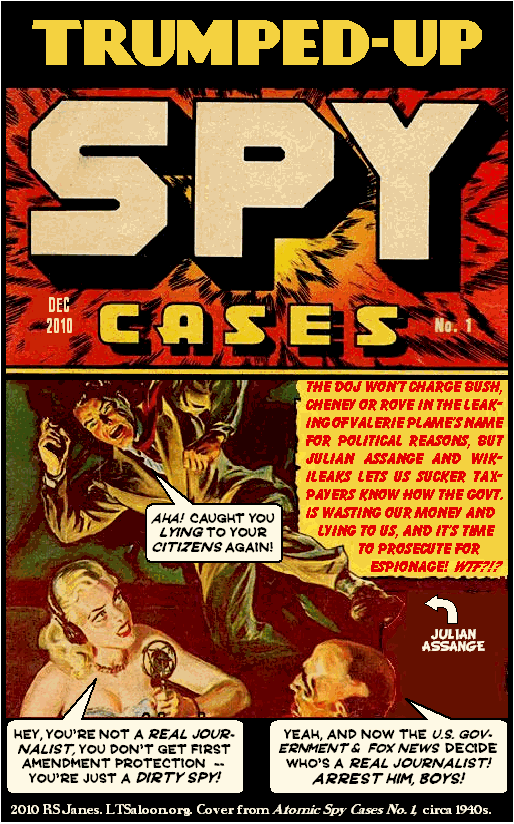
December 17, 2010
The protest that never happened
Author’s note:
If anyone has any doubts that the corporate media controls information by omission or filling the TV with crap, this should dispel that. I ecourage you to read the links in this piece, especially the op ed by Chris Hedges. The people that did this are real Americans, real patriots and we should follow their example…
Excerpt:
135 arrests in DC and that’s not news
About 135 people were arrested yesterday in an anti-war protest outside the White House. This came as President Obama was revealing a new report in a press conference that touted progress in the war in Afghanistan. Thanks to our diligent, informative, corporate media, this act of civil disobediance and arrests apparently are not news.
Those arrested included Pulitzer prize-winning war correspondent, Chris Hedges, Daniel Ellsberg, who leaked the Pentagon papers, retired 27-year CIA analyst Ray McGovern, FBI whistleblower Colleen Rowley, as well as several members of Veterans for Peace.
The anti-war protest, organized by Veterans for Peace, began at 10 am yesterday in Lafayette Park with a series of speeches on the importance of civil resistance delivered to several hundred participants in frigid weather. After the rally, activists formed a solemn single-file process to the White House, silent except for a drum beat. When they encountered police barricades there, some veterans began climbing over them, until the police opened up the barricades, allowing people to approach the fence in front of the White House.
At about 12:30 pm, police began arresting protesters who remained along the fence, several of whom had chained themselves to it…
While small in numbers, this protest is significant because it was organized and led by veterans who have served their country. It is also significant that it was completely ignored by the mainstream media on a news day largely filled with sports news and holiday shopping reports.
One would think that 135 or so arrests on the White House grounds are newsworthy, but apparently not with today’s media. If there is any doubt that the information that major corporate media outlets feed their consumers or omit to tell them is controlled, then this should dispel that doubt. It is apparently not in the corporate media’s interest to report that veterans, ex-CIA and FBI personnel and most Americans are opposed to the ongoing wars.
Read more, get links and video here: Madison Independent Examiner
December 15, 2010
December 13, 2010
December 12, 2010
Kabul vs. St. Louis: Boom town vs. Ghost town
When a friend of mine recently returned from six months in Afghanistan where he had been teaching school in Kabul, I jumped at the chance to grill him. At first he told me a lot of generalized stuff — such as how the young Afghans he talked with felt about the future of their country and how President Karzai’s brother Wali is the biggest heroin dealer in the world (that is if you don’t count Oxycontin manufacturers, the CIA and George Bush).
And then my friend started getting more specific about what he had seen and learned in Afghanistan, and the big differences between there and here. “In the past ten years, I’ve watched American cities turn into ghost towns — and the city of Kabul turn into a gold rush town, a boom town.”
Apparently jobs for Americans in the United States have become scarcer and scarcer but jobs for Americans in Afghanistan have really blossomed. “In Kabul, it’s almost impossible to get fired.”
While in Afghanistan, my friend had worked for an international NGO, teaching school to the children of Kabul’s educated class in a posh district over near the Makroyan, a former Soviet-style housing block, and a few blocks away from the U.S. embassy. He had also worked with Kabul’s beggar children and street rats as well.
“The Makroyan, which sports a fairly good water supply and electrical wiring, used to be a highly sought-after place to live before the giant housing boom that began in 2008 changed all that — as Kabul began to get all prettied up and the housing market became flooded with fancy new high-end high-rise apartment complexes. Now even the airport no longer looks all bombed out.” And don’t forget the giant new multi-billion-dollar prison complex just constructed by Americans out at Baghram as well.
“America has now been occupying Afghanistan even longer than the Russians were there,” continued my friend, “although you can still find plenty of evidence left from the Russian occupation, including several Soviet-style housing blocks and many Russian helicopters that are still in the air.”
Then my friend talked about the last 50 years of Afghan history. “Americans here at home really don’t know much about Afghanistan or about its ten-year Russian occupation, its current American occupation, the huge American airbase in Kandahar built in 1963 or that the British also occupied Afghanistan back in the 1950s, when the Brits designed several extensive irrigation systems which later failed — making many sections of arable land in Afghanistan too salty to grow anything except opium poppies.
“What Americans are doing in these areas now is rehabbing those old British projects from the 1950s — and also rehabbing projects that Americans built in Afghanistan back in the 1950s and 1960s while trying to recreate images of suburban America in the Afghan outback.” And, from what I have heard, they’re also protecting Afghanistan’s poppy crops.
“A lot of kids beg in the streets around where I taught because the embassy and the ISAF are near here and offer a possible steady stream of people to beg from. The ISAF, the International Security Assistance Force, is composed mainly of Italians, Bulgarians and Turks and has been nicknamed ‘In Sandals And Flipflops’ by U.S. forces. But the street kids know U.S. and ISAF troops only in battle gear and with their guns pointed everywhere, and the attitude of the Americans is by far the most hostile on a routine basis. American military convoys are a huge annoyance on the streets of Kabul.
“While in Kabul, I worked with both the street kids and the educated kids, teaching English and sports to them both. And almost all of them, from every economic class that I taught, expressed a clear desire for Afghanistan to form a national identity, one that would break down barriers of race, culture, education and economics — and barriers between opportunities for boys and girls as well. The girls in Kabul also badly wanted to come out and learn.”
I find it ironic that Afghans seem to want to unify themselves so badly — at a time when all too many Americans seem to be trying to head in the opposite direction, to break down into special interest groups based on “Screw the Other Guy vs. Me First” ideologies and “Us vs. Them” mentalities instead of trying to strengthen our current national identity when the going gets tough.
“But is it safe in Kabul now?” I asked. “I’ve heard stories about kidnappings and bomb threats. Is this true?”
“Kabul is now basically safe because there are now checkpoints everywhere — checking for whatever, looking for Pashtuns from out of town, bombs, guns. And they have been really effective too. For instance, they found five suicide bombers complete with vests during the peace meetings that Karzai held last spring. The Afghan National Police are manning the checkpoints and they have been trained by German police.”
“And what about President Karzai? Is he popular in Afghanistan — or not?”
“There are both good and bad things to say about Karzai. He does have a power base and is not completely unpopular, but word over in Kabul is that he’s a junkie. Plus his brother Wali is the biggest heroin driver in the world. But Wali is also a power broker who secures the roads and gets paid millions in protection money from everyone, including Americans.”
Then my friend told me a joke about Karzai that is currently making the rounds. “The Taliban kidnapped President Karzai and issued a ransom note saying, ‘If you don’t come up with five million dollars, we are going to burn him up with petrol. Give all you can.’ So I gave two gallons.” Afghans apparently really like this joke.
According to my friend, there are two major factors involved in the American occupation — the September 11 war and the drug war. “Drug dealing is the thing that keeps it all going over in Afghanistan, where there are actually two wars going on. And the drug war is costing us more.
“In addition, we’re also creating more enemies because we burn poppy fields in order to take drug money away from the insurgency and smoke out the Taliban’s funding. And that’s not just in Helmand and Kandahar. It’s in the north too. Poppies are growing everywhere in Afghanistan and farmers rely on poppy crops for income. But it’s hard to find out what’s going on in these drug wars — for instance, why burn one field and not the other? I have no idea. They’re having a big offensive in Marja right now, to burn poppy crops there.”
Interesting. I’ve heard that it is the policy of American troops NOT to burn poppies as well. So. Whose poppies get burned and whose poppies don’t burn — and who decides that?
“How do the street kids that you worked with feel about Americans and the Taliban?” I asked next.
“Before we talk about the Taliban, let’s first talk about education. There is a ton of money going into schools in Afghanistan and there are more Afghan girls in school right now than ever before. But the main issue regarding education is the lack of schools for the ‘working children’ or street kids because the public schools cost money to attend. And like so many development schemes over there, the school buildings have been built but their operation has not been funded. All that the funders are required to do is to spend their money on hard-asset infrastructure/ school buildings — because it’s easier to track the progress and the skim.
“Likewise, it’s difficult to chart the progress of kids who can’t spend full days in school because their families require the money they can make on the street. And at one point someone decided that all the kids in Kabul were going to have been shipped out to the provinces.
“New schools are being built everywhere but there are almost no education programs in Afghanistan right now — and no one has been able to successfully address this problem at all.” Sounds like what is happening here in America too — with regard to our subtle economic war on teachers.
“A lot of Afghan families have a lot of kids, and these families are poor. And the parents need their kids to help support the families so the kids beg, wash cars, sell gum, carry water or whatever. Most kids there are unable to afford to attend school — either the boys or the girls.”
Plus girls don’t have access to sports in Afghanistan either. “Girls can’t play soccer in public. The Taliban has a hard line on that. And it is against the law for a woman to ride a bike on the street. And now there are more women wearing burkas than ever. One NGO, Skatistan, is building a skate park in Kabul now and actually went to the mullahs and asked them to issue a fatwa allowing girls to use skateboards. And the mullahs actually did — which opened up the Skatistan program to girls.”
Here’s more information regarding the Taliban. “Nobody likes them because almost all of the students I worked with live in a way that the Taliban wouldn’t approve of. And my students are all far-removed from the old Taliban times so don’t know much about that. But I’ve noticed among the adults I’ve talked with that, regarding which time-period in their recent history a particular Afghan prefers will depend on when he or she was doing well and on their skill sets. For instance if you did well during the Soviet times, you liked that time. However, no one looks back to the mujaheddin civil war time with nostalgia. That period was pretty much a nightmare for everyone.”
“So did some people like living under the old Taliban regime?”
“The generally-held view in Afghanistan is that the Taliban rose to power to bring justice and peace to a war-torn and lawless country. And for better or for worse, their justice system was more consistent than what had gone before it. Few people were above the law under the Taliban. Even if one of their own stepped out of line, they were usually punished. But now they have many who are above the law. The Taliban policed their own even. Karzai’s government fails in this way — it’s inconsistent. Some poppy fields are spared while others not. All kinds of stories circulate as to who is illegally doing what.”
And apparently Afghanistan has its own web of stories regarding what people believe is happening there now. “Some of these stories are crazy but people still believe them. 79% of all Afghans didn’t know about the 9-11 attacks and think America just came there to control Afghanistan’s mineral and strategic wealth.”
Ha. No wonder Afghans don’t know about 9-11! According to the latest WikiLeaks documents, it was Saudis who sponsored and paid for 9-11. So why didn’t Bush invade Saudi Arabia instead?
My friend then returned to the subject of national unity. “Afghan kids in Kabul are really into nationalism — into being one country instead of being divided into tribal groups. They want peace, along with stable systems of education, justice and economics. And they want Islam. Almost all Afghans are very devout Muslims and do the prayers. Adults, of course, pray regularly as required. But the teens pray also, and while kids are not expected to pray, fast, etc., many of them do. Alarmingly, even many really young kids participate in Ramadan. Afghans take Islam seriously.”
As for knowledge of the outside world’s view of Afghanistan, “Afghans are aware of the recent Christian fundamentalist Quran-burning episodes in America. They saw that on TV. Many get satellite TV reception in Kabul. And locally there are about five stations there, including Ariana TV and Tolo News. Tolo News can be accessed here in the U.S. at http://www.tolonews.com/en/afghanistan/1181-isaf-to-continue-night-raids-in-afghanistan-. Tolo News is in English and covers all things Afghan. It’s a good source if you want to know what is going on over there.”
Here’s a sample headline of the kind of story you can find on www.tolonews.com: “Two End States in Afghanistan: Somalia of Asia or the Turkey of the East?”
As for international news coming out of Afghanistan, according to my friend all media there is completely blocked down. “If a journalist reports news stories adverse to U.S. interests, he or she will never work for the networks again. Even Tolo News doesn’t cover these kinds of stories because if they do, they are left out from access to U.S. bases. Journalists are under complete threat about never having a job in news again. Here’s an example: The number of people killed in an incident will be stretched out so that instead of reporting that 18 troops were killed by a suicide bomber, they will report that a few troops died one day and then perhaps three more died on the next day. And it’s also the same as what happened in Vietnam — where the number of enemies killed were multiplied and exaggerated. The news media here now is as highly filtered and filtered in the same way as the USSR news media was filtered back when the Soviets were here.”
And as to the Af-Pak area? My friend highly recommended that I watch a video on the subject called, “Down at the Gun Bazaar”. http://www.dailymotion.com/video/x1gizg_vice-travel-darra-pakistan_shortfilms “Definitely the largest firearms market in the world. They make a thousands guns a day here,” says the narrator.
“Kabul is currently a gold rush town, a boom town,” my friend continued. “A lot of building is going on there — mostly homes that they call ‘poppy palaces’. The best place to invest poppy money right now is in Kabul real estate. The poppy-palace mirrored-dome style of architecture has spread like wildfire. But the biggest difference between 2006 Kabul and 2010 Kabul is the lack of bomb craters and bullet holes in the walls. The new levels of growth and development from when I was there before and my recent trip to Kabul really freaked me out. And this new boom-town financing is coming mostly from U.S. military money, poppy money and development money from the US.”
Another big change in Afghanistan has been the improvement of its infrastructure. The road out to Bamiyan was being rebuilt and was the biggest public works project my friend had ever seen — and why not? American contractors make far more money installing roads than they do creating functioning hospitals and schools.
“This new Bamiyan road tears indiscriminately through villages and farmlands. But in a way it is a good thing because it has helped to modernize the country and has escalated the ability to move things around. And all of this has happened within in the last year, under Obama. But the fact that it has taken so long to complete just this one road should serve as Exhibit A in a trial of George W. Bush. They didn’t build hardly any formal infrastructure in Afghanistan under Bush. Money was going to road builders under Bush but the roads weren’t being built for the infrastructure. They were being built in order to further the war — or else Bush siphoned off money earmarked for Afghanistan and sent it off to Iraq.”
“Why did Bush do that?”
“Apparently Bush and his advisers thought that the Taliban would put up a bigger fight than they did — and so when they rolled over, Bush wanted a bigger war and he picked Iraq to perpetuate a lasting war, leaving our troops in Afghanistan hung out to dry, and thus creating the war we have now in a big way. Perhaps Obama is taking care of the business now that Bush should have taken care of years ago.”
But Obama is no saint in my friend’s eyes either. “The way that Obama is now dealing with Pakistan is bad. And by continuing the drug war as well, Obama is also doing the same thing that Bush did — so that ten years after the American invasion, American money and drug money is still poring into Afghanistan.” And out of America’s cities.
“The original pre-2001 Taliban sold poppies to western pharmaceutical companies legitimately but the current Afghan government sells NO poppies to drug companies. And there is a reason for that. Oxycontin, which is one of the U.S. pharmaceutical companies’ best-sellers, is basically synthetic heroin — but if western drug companies were forced to buy Afghan poppies instead of selling Oxycontin, the drug wars would be over in a minute. The entire problem in Afghanistan would be eliminated because it would set a standardized price for opium poppies there. Right now the price of heroin fluctuates according to how many fields are being burned, how many dealers are being arrested, how many facilities are being raided, etc.”
And if you want to know about how the heroin system works in Afghanistan, rent a copy of that DVD movie called “Winter’s Bone,” which describes how the methamphetamine production system works in Missouri. “Raising and manufacturing illegal drugs is currently a major way to survive in both Afghanistan and America.”
When my friend left St. Louis last spring, there were no jobs available at all. “No jobs and no prospects of finding one no matter what your educational level. People with masters degrees were working in fast food places, work trades, etc. And then I arrived in Kabul — and the difference between St. Louis and Kabul was astounding.
“In Kabul, there is nothing both Americans and Afghans can do to lose their jobs — but in St. Louis, they can’t even find jobs. I hadn’t even seen one help-wanted sign in St. Louis during the whole year and a half before I left. But in Kabul, westerners with any kind of skills had unbelievable pay packages, vacation days and benefits.”
“What kind of vacation days?”
“A conservative estimate is that a lot of people have vacation rates of four months on, six weeks off. They are then flown home or to Dubai. For instance, the UN staff is in catastrophic mode now and so receives many benefits. Workers in Afghanistan are defensive about the perks that they get but they get a lot compared to what they would get working in the US.”
But things have apparently picked up around St. Louis since my friend’s been back. “People used to be so scared and hunkered down that they wouldn’t spend any money. There was a collective petrification due to the economic downturn, which in turn was due to so much capital leaving our country without being accounted for — not only job-outsourcing money and offshore corporate money being laundered to avoid paying taxes but also the huge amounts of profits from what Americans spend on drugs that has been going off to Mexico, Afghanistan, South America. This has been a VERY big drain on our economy.”
Another big money drain here, according to my friend, has resulted from Americans buying illicit pharmaceuticals — which are not taxed and not counted. “In America, drug companies sell their products to distributors who then sell the product on to the doctors. And a lot of people who use illegal drugs also have real medical problems, for which they also get prescription drugs — but then they trade their legal prescription drugs off for meth, which they like more than Oxycontin.” Yikes! I didn’t know that. I just assumed that everyone else in America was like Rush Limbaugh.
“Selling Oxycontin is a huge business for the drug companies and they want this practice of trading Oxycontin for meth to continue. For instance, drug companies just spent billions lobbying Congress about keeping pseudoephedrines for sale over the counter.”
“Why is that?”
“So that you can make meth out of it. Meth dealers cook pseudoephedrines down with ammonia — like the ammonia in fertilizer. That’s how it’s done. Crank is also made with aluminum from beer cans — the aluminum bonds with the drug. Then it is snorted, smoked or shot up.”
But what’s so hot about meth? “It’s a long, long high. You can be high for four days on just a small amount. You don’t dream while you are high and you go into sleep derivation, wherein the body releases chemicals that are hallucinogenic almost. It’s the sleep deprivation factor. No amount of coffee can give you that. The brain needs its sleep. And meth won’t let you sleep.” Yuck.
“Jefferson County, right outside of St. Louis, is the meth-plague capital of the world. Meth is a cheap high.”
It seemed to me that my friend had gotten sidetracked into stories about meth production and I told him that. “No. I was just making another analogy between St. Louis and Kabul. A lot of drug companies here in America are unregulated cesspools and the same holds true with the unregulated use of drugs in Afghanistan.”
What goes on in Afghanistan doesn’t stay in Afghanistan however. “For another thing, the war in Afghanistan is basically fueled on Red Bull and up pills — so when troops come home, they are susceptible to becoming meth-heads.
“The first time people use meth, they get really really high and are unable to function, but then after they use for a while, they start to blend in — and can hold down a job. And then, after continued use, they can’t function as a normal person any more. They lose a lot of weight, and the life goes out of their eyes. They start to look older than they are. Less alive. Like zombies. And you can always tell a meth-head because of the sores. They start having big sores — because meth is basically a poison and the sores are caused by the poison being released into the bloodstream.” Double-yuck. And so perhaps America’s Afghan vets have become vulnerable to the illicit lure of crank after a couple years of living on uppers and Red Bulls.
“If you want to know more about meth use in America and how it supports the local economy while destroying the fabric of local society at the same time, watch the movie, ‘Winter’s Bone’. I recommend it.”
Here’s another example of how Kabul has become a boom town while St. Louis has become a ghost town. “In the 1960s, Northwest Plaza here was the biggest shopping mall in the world. Now it only has only one store still open — a shoe repair shop. And in the meantime, luxury malls in Kabul are going full blast. The Kabul City Center mall, owned by Wali Karzai, sells diamonds, electronics, iPods, and iPhones that you can’t even get in St. Louis. No development money being spent here but it is being spent in Afghanistan like water. All that money, along with the drug profits, is obviously going out of our economy.”
And apparently Kabul is actually physically safer for its average citizen than is St. Louis. “Kabul is safe in the context of using St. Louis as a standard — but it’s still pretty dangerous.” Hey, even Berkeley is relatively dangerous these days.
“85% of the cars driven in Kabul are Toyota Corrollas,” my friend added — but I forgot to ask him about which type of cars are being driven in St. Louis.
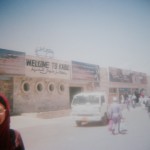
December 10, 2010
December 9, 2010
WikiLeaks’ Julian Assange: Will the Truth Set Him Free?
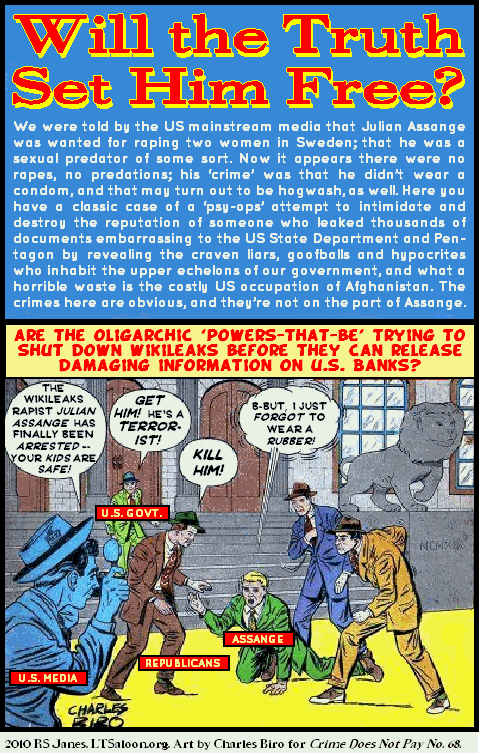
Read the Reuters Special Report on the bogus Swedish charges here.
December 8, 2010
“And what have YOU done with your life?”: The most important question there is
On the day that you die (and everybody does finally die, you can count on that), will you be able to look back on your life and be proud? You know that old saying, “Life is a competition and the winners are the ones who do the most good deeds”? Well. They’re not talking about how much money you’ve made or how many trophy husbands or wives that you’ve had or even how many times you have bombed Iraq or tried to set up Julian Assange.
And you will not even be allowed to count all those tax breaks you have given out to the rich.
In order to win the life-competition, you gotta be able to look yourself in the eye and say, “I helped those less fortunate than me.” If you can’t do that, nothing else counts. Every religion on earth worth its salt teaches us that — and they even sometimes actually practice what they preach.
I just met a man who I am totally positive will be able to look back on his life with absolutely no regrets. His name is Yangthan Rinpoche. He’s 80 years old. He was born in Tibet and is one of the last of those Old Skool lamas that were trained there before the Communist Chinese overran Tibet in 1959. You have NO idea what this man has gone through during his life — and yet he is still both hopeful and kind. No one who has met him can imagine Yangthan Rinpoche even thinking about giving orders to fly deadly drones over happy wedding parties in Afghanistan.
Here’s what Google says about this man: “In 1959, when the Communist Chinese invaded Tibet, Yangthang Rinpoche fled Dhomang. He was later captured by the Chinese, and imprisoned for 22 years. He helped many fellow prisoners who could not bear the hardship to die peacefully by performing Phowa, transferring their consciousness to Pure Lands. Though he witnessed and experienced much torture, he bears no resentment to his captors, only compassion. In fact, he became a spiritual advisor to some of the guards.”
Good grief and crap on a cracker! How many of us could even survive 22 years of torture, let alone come out of that nightmare feeling all compassionate and forgiving? Not me! I’m still totally pissed off at one of my daughters just because I don’t like her. Hey, at least she hasn’t pulled out any of my fingernails or forced me to live on stone soup for 22 years!
Anyway, Yangthang Rinpoche is currently conducting three whole months’ worth of Tibetan Buddhist liturgies out in Alameda, CA — of all places. This series of liturgies, called wangs in Tibetan, will continue until February 15, 2011, are open to the public, cost $30 a day and entail receiving over 550 separate empowerments. This is an amazing event, usually only performed every five or ten years in mountaintop monasteries in Bhutan or something. http://www.orgyendorjeden.org/rinchen_terzod.html
But enough of the commercials.
I’ve been to several of these liturgies in the past week and what can I say? Here’s a 80-year-old man who is not only able but willing to spend five or six hours a day for the next three months chanting a whole bunch of stuff which he believes with all his heart will bring peace to the world.
That’s what this great man has been doing with his life.
“And what have YOU done with your life?”
PS: And speaking of great men, I always thought that Santa Claus was also a great man. And, apparently, Santa Claus will be coming to Berkeley on December 22. And not only that, but my three-year-old granddaughter Mena has become pretty much nutzo about Christmas tree lights lately. So here’s a sort-of secular list of places in the San Francisco Bay Area where you can go to see Santa and/or get your twinkle-light fix taken care of:
– There used to be a Dickens Faire every year in San Francisco and then they stopped doing it. And now they are doing it again! Hurray. The Dickens Faire is totally cool. http://www.dickensfair.com/
– Apparently they light up the Oakland Zoo every night in December. http://sf.funcheap.com/123-zoolights-oakland/ and http://www.oaklandzoo.org/news/press-releases/zoolights/ We just gotta do this!
– Sunol has a whole Christmas train full of lights: http://www.ncry.org/tol_10.htm
– Then there’s Ardenwood farm but I think that event is now over for the year. Next year?
– And there’s always my daughter Ashley’s Christmas tree — plus she doesn’t even charge admission.
– Historic Dunsmuir House in Oakland goes all-out with their lights and decorations every year — no holds barred. http://www.dunsmuir.org/calendar_holiday09.html
– And Santa will be at Frances Albrier Park on December 22, from 11 am to 1 pm in South Berkeley, 2800 Park Street. “Tots will come meet and greet Santa before he zooms away on his sleigh! Visit Santa and receive a gift. There will be snacks, fun, and holiday cheer for everyone!”
****
To see photos of Yangthan Rinpoche, click here: http://jpstillwater.blogspot.com/2010/12/and-what-have-you-done-with-your-life.html

December 7, 2010
Heard any good gossip lately?
John Loughery’s biography of Willard Huntington Wright, titled S. S. Van Dine, contains a noticeable amount of material about art theory which this reader found interesting. That prompted us to leap to the assumption that we would have enjoyed the evening of conversation about that very esoteric topic which was recently scheduled to occur in New York City at the 92 St. Y. Unfortunately, the event was put on a cable TV channel and the viewers were encouraged to e-mail questions. The host group was inundated by requests for celebrity gossip because one of the participants just happened to be the author, comedian, and actor Steve Martin. The event sponsors caved to public pressure and relayed the audience’s wishes to Mr. Martin. That destroyed the event’s intellectual intent and threw it into complete disarray.
We learned about this Manhattan based brouhaha on Sunday morning at the café Mediterraneum in Berkeley CA while we were finishing our first pass on that day’s installment of the Week in Review Section of the New York Times.
Initially, declaring that we were in a genuine beatnik café (hey, if the place was open as the Piccolo and offering bargain meals while Jack Kerouac and Alan Ginsberg were living in Berkeley . . .) before noon may be suspect, but, since that place was the home of the caffé latte, and since we were in dire need of a dose of caffeine, and since we had, while walking there, acceded to an impulse to buy the aforementioned massive journalistic document dump of information and ideas, it seemed altogether proper and fitting to be thus engaged.
We noticed that our neighbor at the next table was duplicating our effort to become well informed. We asked: “Why are you reading the New York Times in Berkeley California? He noted that was a profound question and he lacked a profound answer. Fair dinkum. We exchanged a few additional bits of opinion and local information and so when he rose to leave we asked if he knew where in that particular university town, someone could go to find a lively discussion. He listed three possible locations worth, by his reckoning, investigation.
Jesus, Mary, and Joseph, wouldn’t cha know it; his answer indicated that we might want to reach into the memory bank and use our ability to imitate an Irish accent to augment the search process. In the part of Pennsylvania, where we spent our childhood years, IrishCatholicDemocrat is one word and everyone who used it was of Irish ancestry.
Some naïve folks may suggest that what this columnist needs to do is to turn on the radio and turn the tuning knob to find a smorgasbord of lively discussions revolving around the day’s controversy du jour. Aye, lads and lassies, there’s the rub. The programs available on the radio are comparable to playing a game of chance with a Mississippi riverboat gambler. The programs that are conducted under the conservative banner, will disconnect a caller who is heading toward making a salient liberal point (“to protect the audience from misinformation and heresy” or words to that effect) while the shows that are hosted by a liberal pundit are lately prone to be dominated by callers repeating conservative talking points.
Consequently the result is as bland and boring as if someone who does not give a tinker’s damn about sports, tunes into a radio station featuring sports talk. Don’t the stations in the San Francisco Bay area favor the local teams and don’t the New York City based stations featuring sports talk favor the Yankees, Jets, and Giants football team?
The days when people who wanted a lively discussion would adhere to the guidelines elaborated in Robert Louis Stevenson’s essay “Talk and Talkers” are part of a lost era. Now, shouting matches are foisted on the audience because they are entertaining and help boost ratings.
After departing the previously mentioned beatnik café, we encountered a fellow who, when we had occasion to mention that we do not own a TV set, said: “Someone who doesn’t own a television? . . . that’s as scary as a Steven King movie.” Just a few moments after that exchange, we encountered a group of young hippies in the world famous “People’s Park,” who were deeply engrossed in the process of reading a fresh copy of that day’s edition of the New York Times. We took a photo because the tableau resembled a cross between a Saturday Evening Post cover painted by Norman Rockwell and some photojournalism (by Dorothea Lang?) documenting the last Great Depression.
Could it be that the conservatively owned news media have, with their incessant proclamation of the triumph of the philosophy of the wealthy, only manage to delude just themselves? What if the attitude toward journalism in the United States today matches the levels of cynicism and distrust toward managed news that was experienced in Germany during the second half of 1944?
Every kid knows that hot air and bubble gum will collapse when they meet their limits, but do the best known purveyors of conservative talking points have late night moments of questioning and doubt similar to what Scrooge experienced when he encountered some ghosts in the Dickens tale?
What respected journalism awards have Rush and Glen Beck won?
Isn’t it time for Rupert and the Koch brothers to fund some new news awards which can be bestowed on hapless propagandists to impress gullible teabaggers and to reassure any conservatives vulnerable to moments of self-doubt?
Liberal websites are like the canary in the mine and some of them are looking very peaked these days. Imagine, if you will, that Combat newspaper, which was distributed in occupied Paris during World War II, had suspended publication because of a lack of money. Do Americans still not get the picture?
Does Rush Limbaugh honestly think that capitalists will continue to pay his salary when the last vestiges of any opposing point of view have been extinguished? Capitalists don’t get rich by handing out exorbitant paychecks unnecessarily. When the voice of opposition and lively conversations have become extinct, Rush’s services will be as appealing to the capitalists as the efforts of a union organizer are now.
From a selfish point of view, wouldn’t it be logical for Rush to think that he should sporadically offer subsidy money to liberal media anonymously
Listening to Rush Limbaugh repeat passages from the Republican playbook reminds this columnist of the Twilight Zone episode that ended with the line: “It’s a cookbook!”
Wouldn’t readers of this website love to be the clerk in an Unemployment Office when all liberal media has been extinguished and Rush is given a pink slip and has to learn first hand what amounts of bureaucracy are involved in the paperwork necessary to start an unemployment claim?
Patriotic teabaggers would be the first to proclaim “It can’t happen here.” To which we would quote the closing line from The Sun also Rises: “‘Yes!’ I said. ‘Isn’t it pretty to think so.’”
Richard H. Dana, Jr., in Two Years Before the Mast, wrote: “Whatever your feelings may be, you must make a joke of everything at sea; and if you were to fall from aloft and be caught in the belly of a sail and saved from instant death, it would not do to look at all disturbed, or to make a serious matter of it.” That’s good advice for conservative talk show hosts too.
Now the disk jockey will play Walyon and Hank Jr.’s “The Conversation,” a bootleg copy of “Cosmic Joke,” written and sung by David Carradine, and (from South Pacific) “Happy talk.” We have to go to the “Going Places” travel agency and ask Tulle if Pan Am offers a stop off in Tahiti if we buy a ticket to New Zealand. Have “smile when you say that” type week.
December 6, 2010
December 4, 2010
The return of lynch mob mentality
Describing the subjective reactions which accompany the miscalculations of a driver who finds that the automobile he is driving is going to do a rollover seemed to be material which would provide an excellent metaphor to be applied to the sensations that were experienced by advocates of a free press while they were witnessing this week’s vehement reactions by the Republicans to the latest WikiLeaks document dump.
In their January 1969 issue, Esquire magazine (the writer of one of their articles would be a more precise way of putting it) declared that race car driver Masten Gregory was the last of the great crashers. He would exit a Ferrari that was traveling at a hundred miles an hour toward a wreck situation with the same savoir fair and sang froid as if he were agent 007. He has successfully done that maneuver more than once in his life. It is good to have that bit of trivia available if you happen to find yourself in a vintage Volkswagen (remember the kick peg to access the last gallon of gas in the fuel tank?) that is tilting precariously to one side. A decision about departing from a vehicle as a crash becomes imminent is a quick-draw gun fighter reaction and not an occasion for a prolonged and detailed debate weighing the pros and cons of a binary choice: “Should I stay or should I take the option to get the hell outta here?” It’s a “think fast” type situation that is focused on and decided in one short moment in time.
We all know that Republicans are fanatical in their devotion to the Constitution, but when it gets to the Amendments, then they begin to go all wobbly and the issues start to get a little bit fuzzy. Thus while they give titular approval to the concept of a free press, they do consistently balk when it comes to most debates over the application of the principles established by the First Amendment. This week, it seems, some Republicans were on the verge of suggesting a return to vigilante justice and an endorsement of the idea that Julian Assange should be stoned to death in front of the New York Times home office. (Does stoning a sinner in public equate to “Second Amendment” remedies?)
Obviously teabaggers would be eager to debate the topic “Is Julian Assange the new victim of “The Ox-Bow Incident” mentality?” and slip in clever bits of equivocating and blur the terms of the debate because they are clever fellows who fully appreciate the art of fine oration. They seem oblivious to the point of view that the effort to quash Assange comes perilously close to replicating the level of tolerance for dissention held by Germany’s National Socialist Workers Party in Germany during the Thirties
Republicans with highly developed debating skills would be quick to point out that an occasional application of denial of the public’s access to biased propaganda is not the same as news censorship and therefore an acceptable remedy for the crisis that the WikiLeaks has precipitated in the realm of information management.
The Republicans ignore requests to show what specific information has endangered American lives by being published and completely ignore questions about how Assange qualifies for the death penalty on that count while Dick Cheney got a full pass for the damage he caused by outing Valerie Plame.
Some villainous Democrats have taken the debate over Assange as an opportunity to smudge and fudge and make gullible rubes think that a stifling of the WikiLeaks affront to the diplomatic corps of the “greatest country on God’s green earth” is comparable to the efforts of Herr Goebbels to implement mind-control on a national level.
The Democrats exaggerate the threat so greatly that they would have folks believe that the choice regarding killing Assange ASAP or sparing his life, putting him on trial, and then executing him for treason, is important and an occasion comparable to giving a crowd of members of the Hell’s Angels Motorcycle Club the choice of granting a full pardon to either Our Lord and Savior, Jesus Christ, or to a legendary brigand name Barabbas. They would have us believe that the Republicans are actually crying: “Death to the free press!”
Future historians will look back on the week after Thanksgiving 2010 as the “point of no return.” Will Fox News (have you noticed how some lefties sneeringly pronounce it as if it were spelled Fucks News?) convince America this week that Rupert Murdock should become JEB Bush’s Commissar of Information or will America turn on the Republicans and endorse unfettered access to accurate information?
When Paul von Hindenburg decided to grant the leader of a minority faction the chance to be named chancellor, it was (to coin a new meaning for an old geometry phrase) a fulcrum moment. He did not realize that the lives of millions depended on his response. The instant he replied the course of history changed and their fate was sealed.
Someone with much more computing expertise than this columnist, could probably assemble a montage of moments from Western movies when someone yells: “Come on, boys, let’s string him up!” and juxtapose it with some Republican sound bytes from this past week and get the point across. (It seems doubtful that Jon Stewart is reading this, but if he is; he has my permission to use this suggestion for a video segment.)
The New York Times, which this columnist has vigorously criticized previously, took a historic and commendable stand with their coverage of the latest WikiLeaks document dump. At an event held this week in Berkeley, a member of the audience shouted out the idea that Julian Assange should get the next Nobel Peace Prize. Isn’t he a leading contender for the “Time Man of the Year” award (which is given for news value and not as an accolade)?
Americans are facing a fulcrum moment. Americans can repudiate the Republican reaction to Assange or they can raise their hand in “the German salute” and prove that those who forget history are doomed to repeat it.
Omar Khayyam once said:
“The Moving Finger writes; and having writ
Moves on: nor all your Piety nor Wit
Shall lure it back to cancel half a Line
Nor all your Tears wash out a Word of it.”
Now the disk jocky will play Dobie Gray’s “In with the In Crowd,” Jim Backus (and friend) doing “Delicious,” and Willie Nelson and Ray Charles singing “Seven Spanish Angeles.” We have to go and investigate the news tip that Assange is staying at Lee Harvey Oswald’s secret hideout somewhere in the USA. Have a “The High and the Mighty” type week.
Sadness: When “Plant a Tree for Israel” goes awry
It always saddens me when I hear about the destruction of human life and property for no reason. And I have been completely saddened and dismayed to learn about all the horrible wildfires that are currently tearing through northern Israel unchecked. These out-of-control blazes have destroyed up to one-eighth of the entire state of Israel so far — and with no end in sight. At last count, over 40 people have been killed and thousands more have been left homeless.
To me, it is particularly sad that the exact same trees that are now burning so intensely are the very same trees that were planted so many years ago during the extensive 1950s “Plant a Tree for Israel” campaign that allowed for the purchase of over 260 million trees. And each one of these trees may have been purchased with small, precious sums of money eagerly and hopefully donated by schoolboys and schoolgirls in America.
Each pine tree now in flames may have been purchased with some little boy’s allowance that he had saved up for weeks, months or years, or with some little girl’s birthday money or babysitting money or paper route money. (Hey, my sister had a paper route back in 1955 — girls did that kind of stuff too — just think of Rosie the Riveter!)
All these precious trees up in flames.
People and property needlessly destroyed.
This tragic loss also reminds me the tragic losses that have happened in southern Lebanon, Beirut, Jordan, Syria, the West Bank, Jenin, Hebron, Gaza, the Golan Heights, East Jerusalem, Iraq, Iran, Afghanistan and Manhattan.
It is always a sad tragedy and waste to humanity when people and property are needlessly destroyed.
PS: I just got an e-mail from an expert in that area to the effect that I was being way too subtle here and that although things certainly have gone awry in Israel/Palestine recently, things in that area actually began to go awry far earlier than this current wildfire situation.
“Things first began to go awry in that area when the very first ‘Settler’ killed the very first Palestinian solely for his or her land.”
“And when was that?”
The expert who e-mailed me stated that this may have happened as far back as the 19th century — long before even the beginnings of all that horribleness began occurring in 20th-century Germany.
PPS: Here’s my account of having visited that area of northern Israel back in 2006:
Today we drove up into northern Israel, to see the remains of a Palestinian village that had been destroyed by the Israeli army approximately 60 years ago. As we drove along the freeway toward the Lebanese border, we passed a McDonalds sign. And a sign for KFC. It reminded me of when I used to take my children on trips. They would see a McDonalds and say, “Are we there yet?”
Finally we arrived in a relatively large Israeli city near the Lebanon border. Mostly it seemed to consist of miles and miles of strip malls. The best of American architecture! I felt right at home. Then we drove out through the countryside on the far side of the city and then up into the mountains, finally arriving at a hilltop somewhere near the Lebanese border. Lots of trees. Nice view. “Oh, look! There’s a cow.” There was a bunch of cows.
We arrived at the site of the former Palestinian village, apparently one of 450 Palestinian villages destroyed at the time. But I couldn’t see nothing but trees and grass and cows.
“Some of the original inhabitants of the village will be meeting us here,” said the Israeli man I had driven up with. He, like many other Israelis, strongly objected to the drunken use of force by the IDF and he, like many other Israelis, has made a point of learning some of the true history of what had gone on way back then. When he had offered to bring me here, I had jumped at the chance.
“This is one of over 500 Palestinian villages that were destroyed by the Israeli army back around 1948-49.” Wow. They certainly did a good job on this one! There was nothing left but stones — and cows.
“All record of what the Palestinians call the Nakba — the catastrophe — are absent from Israeli school curricula, from most history and geography books and even from maps of Israel itself. The sites of the old Palestinian villages have even been erased and re-named on all of the maps. And even today there is no official Israeli recognition or commemoration — let alone apology — for the Nakba.”
We got out and walked around the land where the village used to be. There was nothing left. Just a lot of scattered stones. Another bunch of cows appeared as we walked down a dirt road. Photo op! Except that these cows had horns. Big horns. Lots of horns.
“In the Zionist collective memory,” continued my Israeli friend, “the Palestine of 1948 was a ‘A land without people for a people without a land’. Yet the place where Israel was founded was never empty. This was home to almost one million Palestinians living in over 700 villages and cities, most of which were depopulated and re-named in the period during and immediately following 1948.” Now all there was here was cows. And cow poop. Opps.
It was a peaceful afternoon in the country. We walked up the path to the top of another hill. Terrific view — almost like the Sierra foothills near Auburn and the California gold rush country up before you get to Lake Tahoe. “Here is an old fortress that was bombed by the Israeli air force back in 1949. 99% of the houses were still standing in 1950 but the Israeli army returned and blew up everything that was left. You are now standing on the site of the elementary school and the high school. The village used to make its living by growing bees and harvesting honey.” Not any more. Nothing was left. It looked like even the bees had left town.
“And here is the Muslim cemetery and across the road is the Christian cemetery, dating back from the time of the Crusades.” Now a small stone building was all that was left. “It used to be the minister’s home. For hundreds of years, Muslims and Christians had lived — mostly — in peace in this village. And over there was the village pool and the village green.”
On that day in 1950 when the rest of the villagers had been driven away by the occupying Israeli army, one family had been down in the fields during the seizure and occupation of the village. “When they came back and one of their boys had a wound that he had gotten while farming, the Israeli soldiers said that it must have come from resisting the invasion so the soldiers tortured him and killed him. His parents were too scared to even come out of the trees in order to collect his body. The rest of the surviving villagers had run and hidden in their olive orchards but after a few days without food, two old men went back to the village to try to get supplies from their homes. They were shot.”
The Israeli army wanted to hide any evidence of destroying the village. “But they were stupid. They left all the stones.”
Then somehow we got into a discussion of eye-wear and I gave someone with me my famous “glasses as accessories” speech. “Nobody manufactures yellow glasses,” I lamented. “Do I have to do everything myself? Now I have to manufacture glasses too?”
Then we toddled off to what was left of the village church. I met an Arab-Israeli man there who was also touring the ruins and he told me his story. “My grandfather was a Palestinian and he had a very high regard for education. When I was a boy, he made each of his grandchildren learn a different language. Unfortunately I got stuck learning English,” he joked. “The others learned French, German, Spanish and Chinese.” Chinese? “Yes but unfortunately the only textbook he had was Chinese to English so he was forced to learn English too.”
Apparently when the Israeli soldiers stormed the village back in 1950, they confronted the headman, who was a Christian. “Why are you defending these Muslims,” the Israeli commander asked and the headman answered that, “in this one moment, we now are all belonging to the same religion — and it is God, not us, who will sort out who is good and who is bad.”
The air today smelled of pine trees. There were stone blocks everywhere. Thousands of them. One of the villagers who had survived the massacre and who had come back for the day spoke to us. “Every year since the Nakba, those of us who are left feel so empty inside. The horrible violence seemed so senseless. It has split our bodies and minds. Our bodies stand here 57 years later but our souls are still back in our village, so long ago, in this beautiful place. And no matter what the Israeli history books say, this village did once exist.” That man survived. And he remembers.
“We thought at first that we might be allowed to come back to our village,” said the man. Who could blame him. This place was — and is — beautiful. “Other villages took us in but then they too were destroyed. But we will never give up our dream of someday coming back here, back to our home.”
Apparently after 1950, this village was declared to be a “military area” and so the villagers were never allowed to return. And even today, even with all the trees and the cows, this village is still labeled a “military zone”. The sun was beginning to set so we walked back to our car and drove back to Tel Aviv. And we didn’t stop by McDonalds for dinner on the way back.
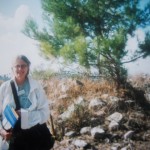

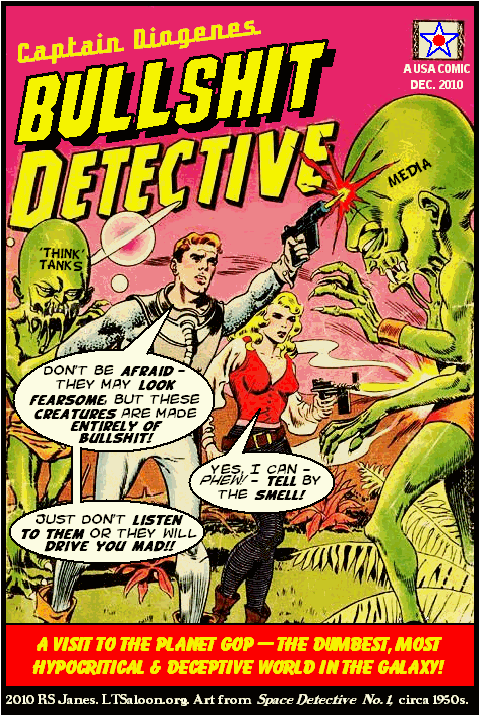


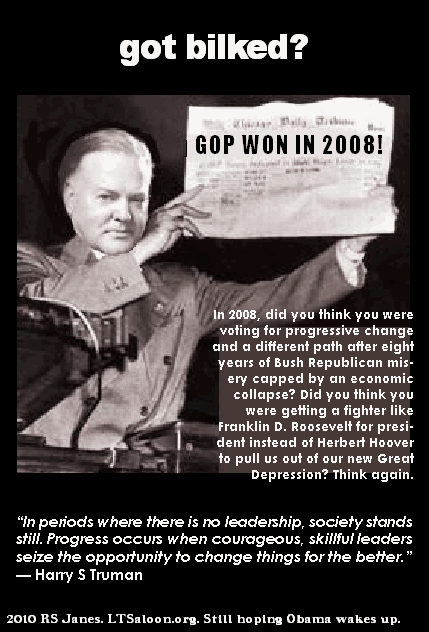
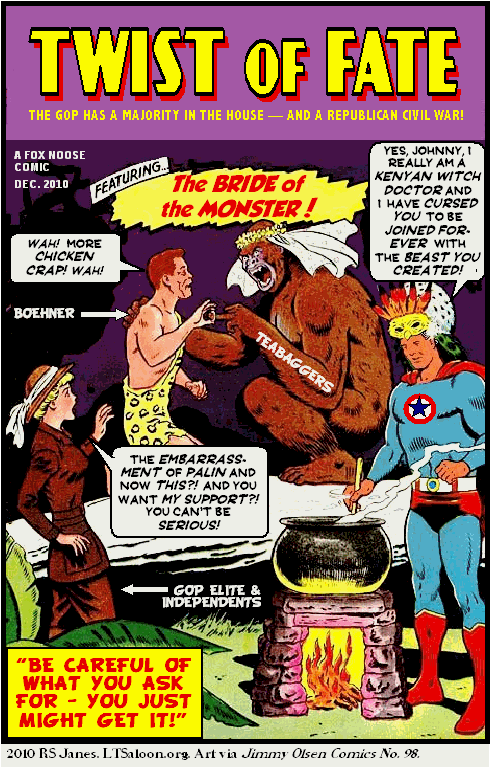
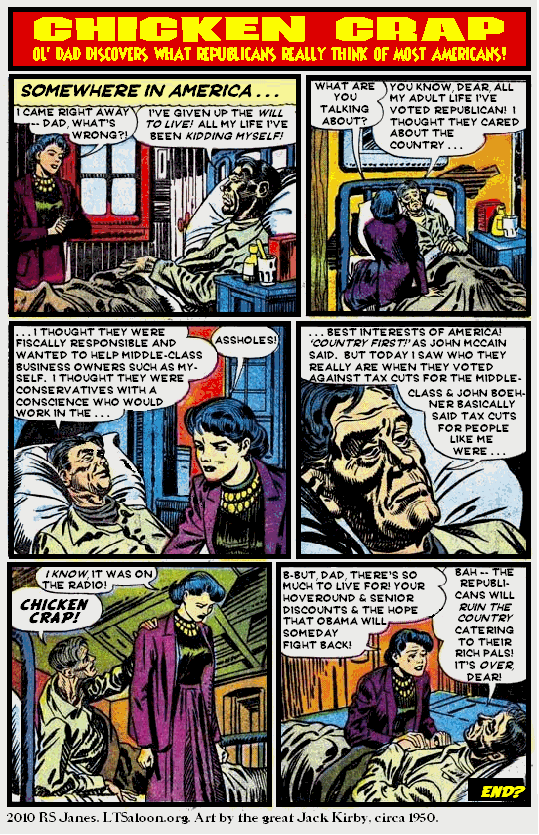
America in the Golden Age of Schizophrenia?
Item 26 on the Action Calendar for the Berkeley City Council Regular Meeting, which started at 7 P. M. on Tuesday, December 14, 2010, brought the famous university town to world wide attention (once again) because it called for support and freedom for Pfc Bradley Manning and urged the council to proclaim Manning a hero. Citizens were given one minute each to speak about the item. The two opposing sides were firmly entrenched in their divergent positions. For the folks against the item, it was a matter of patriotism to defeat the motion; for those who endorsed the motion, approval was a manifestation of the position that the USA must adhere to the principles enunciated at the Nuremburg War Crimes Trials. The Berkeley City Council voted to table the motion, which means they decided to not make a decision (for the time being).
In a city where the Hearst School of Journalism is located, there did not seem to be any j-school students getting a first hand look at the noteworthy meeting. It was easy to get a seat in the audience an hour after the meeting started. There were a few TV trucks in front of the building where the Council Chambers are located (not the City Hall), but it was not the large number that was adjacent to the Court House in Santa Monica when the matter of the Roman Polanski statutory rape case was being considered. Perhaps the world news organizations were economizing by using the work of various San Francisco TV stations as pool feeds? Or could it be that sex cases are more important than war?
Can an entire nation become schizophrenic? There are two schools of thought on that question. One says “absolutely” and the other says “No way, Jose!”
Those who say it can happen offer some items for evidence such as: When Ed Muskie cried in Vermont, while seeking his party’s Presidential nomination, the media stepped in and destroyed and discredited his quest by pointing out that he was emotionally unstable, but when Rep. John Boehner, the Republican who will be the next Speaker of the House and will be right after the Vice-President in the line of succession, cries it’s OK because it is a manifestation of the Orange man’s “softer side.”
When the Germans used waterboarding, they were committing a war crime; but when America uses the “simulated drowning” method of questioning, it’s OK because they are protecting their country.
During the eight years of the Bush era, tax cuts do not seem to have provided a surfeit of jobs, but now that a Democrat is President, extending those tax breaks will suddenly provide jobs.
When Julian Assange exposes war crimes, he should be lynched because he might be endangering American lives; but when Dick Cheney outs a CIA agent (which is specifically verboten) that’s OK because her husband’s loyalty to President George W. Bush was in question.
After Germany’s leader used subterfuge to instigate an invasion of Poland, that example of misconduct was used at Nuremburg to produce the principle that any invasion is a crime against peace. When George W. Bush used nonexistent weapons of mass destruction to justify the deployment of American troops into Iraq, that was OK because he didn’t know that they were figments of his own imagination. Isn’t that like using a “temporary insanity” plea as a way to avoid a conviction for war crimes?
There’s an old bit of wisdom for those who attend Comic-con: “Reality is a crutch for those who don’t understand Sci-fi.” Should that axiom be amended? “Reality is a crutch for those who don’t understand patriotism.”
Rupert Murdock is a (very wealthy) wise old media mogul from Australian and the thought that a cute and much younger, much less experienced guy, who is also from Australia . . . is there something going on here that the US doesn’t know about? Do you think that . . . ? Isn’t it just a case of a refusal by the older journalist to pass the torch to a new generation? Does the management at Fox News think that the Assange sex case more important than war? Is it?
Would it be deliciously ironic if the password to unlock the next WikiLeaks document dump uses the Des-key (F2654hd4) used to keep the electronic voting machines secure? Perhaps that could happen by repeating those same 8 characters several times? If that is the case, could it be considered an inside joke for the hackers community?
In the land where former PM Tony Blair was affectionately called Bush’s Poodle, are the Brits refusing to participate in a new installment of the “dog and pony show”? If America wants to bring Assange to the USA, why is it necessary to play the shell game about getting Great Britain to send him to Sweden first? Can’t the USA just ask the Brits for extradition? Have the people who benefited from the Lend Lease program completely lost their sense of gratitude?
Whatzizname from Facebook has just been named Time magazine’s newsmaker of the year for being who he is and doing whatever it is that he has done. Folks in Russia think that Julian Assange deserves a Nobel Peace Prize but the news organizations seem to be skipping over what the Commies think of Time’s selection.
Neal Diamond has just been named to the Rock ‘n’ Roll Hall of Fame.
When Berkeley has the chance to once again direct the focus of anti-war sentiment to their city, they tabled the motion.
President Obama was last year’s Nobel Peace Prize winner. He has continued using the questioning techniques authorized by George W. Bush & Co., which some say qualifies as a war crime. Will future historians dare to ask if those two facts, taken together, prove that the year 2010 was the high point of the Golden Age of American Schizophrenia? On the one hand, this columnist is inclined to predict that it will happen; on the other hand, maybe we should just table the motion and let it slide.
In The Dream of the Golden Mountains (The Viking Press hardback 1980 on page x in the Foreword), Malcolm Cowley wrote: “I say ‘we’ and ‘us’ while conscious of their being treacherous pronouns; any reader is entitle to ask, ‘Who is we?’”
Now the disk jockey will rock out and play “Brother Love’s Traveling Salvation Show,” “Holly Holy,” and “I am I said.” We have to go get a wifi connection to learn what happened after we left regarding Item 27 for the Berkeley City Council which meant they would urge Pacifica to reinstate to KPFA’s Morning Show. Have a “Stones” type week.